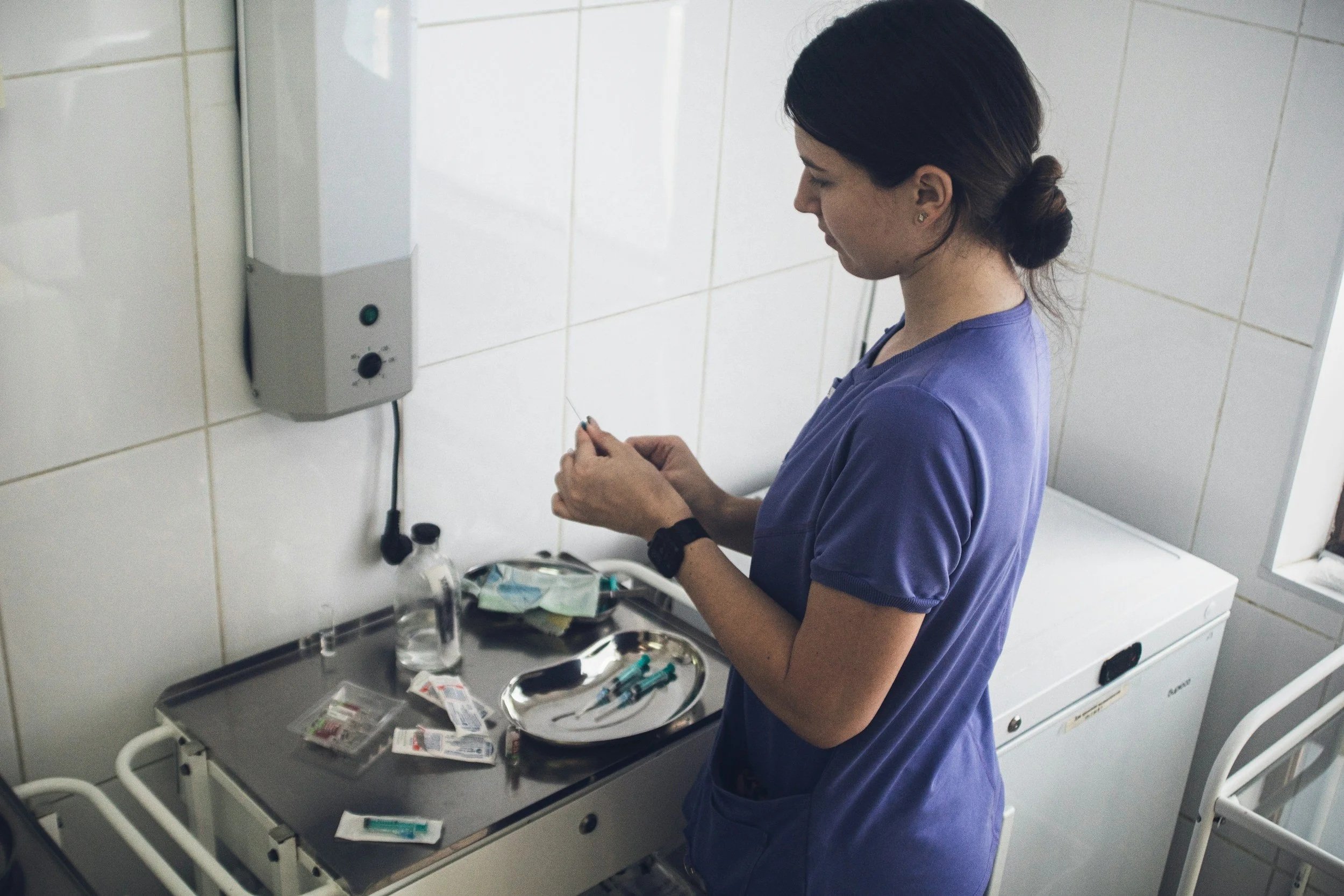Hormonal contraceptives such as birth control pills, vaginal rings, hormonal intrauterine devices, and implants can temporarily suppress ovarian function, including the production of anti-mullerian hormone (AMH). AMH, primarily produced by small ovarian follicles, serves as a marker of ovarian reserve.
While research on this topic varies, a notable study in 2021 published in the Journal Fertility and Sterility found that women using most types of hormonal contraceptives (like the pill, Depo-Provera injection, and vaginal rings) tended to have lower AMH levels compared to those who didn't use contraceptives. This suggests these methods may temporarily affect ovarian reserve markers.
Additionally, a study from Europe observed that users of the levonorgestrel-releasing intrauterine system also had lower AMH levels compared to non-hormonal contraceptive users. While these findings don't confirm a direct cause-effect relationship, they do indicate an association between different hormonal contraceptives and decreased AMH levels.
Importantly, this effect of decreased AMH is typically reversible upon discontinuation of birth control.
Considering these insights, it's advisable to discuss the timing of AMH testing with your healthcare provider if you're currently using hormonal contraceptives and contemplating fertility assessment or planning. They can offer personalized guidance on when to temporarily discontinue contraceptives for more reliable AMH results.
In clinical practice, if your initial AMH results show strong levels, it often means there's no immediate need for further testing. However, if you've been using hormonal contraceptives long-term and find unexpectedly low AMH levels for your age, taking a break from these contraceptives and retesting after 1-2 months can offer a clearer picture of your ovarian reserve.
If you have specific concerns, consulting with a fertility doctor (reproductive endocrinologist) would provide valuable insights and reassurance about your fertility potential.
Save 20% on AMH + Fertility Testing
Save 20% with code “FREEZE” on Women's Fertility AMH Test and Women's Fertility Ovarian Reserve Test.

Irene Woo, MD, FACOG is an esteemed and compassionate medical professional holding dual board certifications in Obstetrics and Gynecology, as well as Reproductive Endocrinology and Infertility. Dr. Woo’s extensive contributions to the field are well-documented, with numerous scientific and clinical articles published in reputable peer-reviewed journals such as Fertility and Sterility, and the Journal of Assisted Reproduction and Genetics. In addition to conventional IVF treatments, Dr. Woo specializes in minimal stimulation IVF, oncofertility, fertility preservation, and precision medicine. Learn more about HRC Fertility’s egg freezing practice on Freeze.
Answered by Dr. Roy Handelsman from HRC Fertility. Understand how ovarian cysts and ovarian surgery may impact the egg freezing process.
Answered by Dr. Rashmi Kudesia from CCRM Fertility Houston. Here’s a checklist for before, during, and after your egg freezing consultation, including 11 questions you should ask the doctor.
Answered by Valerie Shafran, MSN, FNP-C from Extend Fertility. Discover why fertility experts urge women to stop taking GLP-1 agonists before an egg freezing cycle.
Answered by Dr. Nidhee Sachdev from South Coast Fertility Specialists. Explore what AMH tells us about a woman’s ovarian reserve or how many eggs she has left.
Answered by Dr. Hade from Generation Next Fertility. Understand how egg freezing does not cause long-term weight gain yet there is a chance of transient bloating.
Answered by Rijon Charne, JD from Sunray Fertility. Explore what a reproductive estate plan entails and the situations where having one can make a big difference.
Answered by Rijon Charne, JD from Sunray Fertility. Learn more about the importance of clinic disposition forms, including what they do and don’t cover.
Answered by Rijon Charne, JD from Sunray Fertility. Discover the legal nuances that can shape your options when freezing eggs or embryos.
Answered by Dr. Joshua Klein from Extend Fertility. Learn how birth control relates to egg freezing and if you will need to stop your hormonal birth control before starting the procedure.
Answered by Dr. Jesse Hade from Generation Next Fertility. Discover the important factors that affect chances of egg freezing success in your late thirties.
Answered by Sidonia Buchtova, PA-C, C-RHI from Refresh Psychiatry. Understand if you can stay on an SSRI or SNRI when freezing your eggs.
Answered by Sidonia Buchtova, PA-C, C-RHI from Refresh Psychiatry. Discover tips to help support your mental well-being during preparation, throughout the cycle, and after your egg retrieval, especially if you have a history of anxiety.
Answered by Dr. Katharina Spies from Vida Fertility. Learn about who should consider supplements before and during fertility preservation, and how supplements could support your egg freezing cycle.
Answered by Dr. Serin Seckin from Generation Next Fertility. Understand the key differences to help you make an informed decision that aligns with your personal and reproductive goals.
Answered by Dr. Ido Feferkorn from the Reproductive Medicine Group. Learn how Polycystic Ovarian Syndrome (PCOS) may affect the egg freezing process and outcomes of fertility preservation.
Answered by Dr. Meera Shah from Nova IVF. Understand the potential risks of egg freezing to help you evaluate if it is right for you.
Answered by Dr. Hade from Generation Next Fertility. Learn from start to finish the entire process of what happens on the final day of an egg freezing cycle.
Answered by Dr. Sahar M. Stephens from Northern California Fertility Medical Center. Understand the probability of pregnancy based on the number of eggs frozen and the age at which you freeze.
Answered by Dr. Alison Peck from HRC Fertility. Discover which medications are commonly used for ovarian stimulation during an egg freezing cycle.
Answered by Dr. Kathryn Snow from Piedmont Reproductive Endocrinology Group (PREG). Understand the side effects that you may experience when freezing your eggs.
Answered by Lia Schiller, MSN, AGNP-BC from Extend Fertility. Learn why IUDs can stay in place throughout the egg freezing process.
Answered by Dr. Woo from HRC Fertility. Learn how some medications need to be stopped for an egg freezing cycle while some medications can be continued.
Answered by Dr. Dan Nayot from The Fertility Partners. Learn how artificial intelligence is providing women with more information than ever before about their eggs.
Answered by Dr. Joshua Klein from Extend Fertility. Egg freezing doesn’t impact your chance of getting pregnant naturally, because egg freezing makes use of eggs that would otherwise have been lost.
Answered by Dr. Dan Nayot from The Fertility Partners. Understand the distinction between egg quantity and quality, and explore how AI is transforming egg quality analysis.
Answered by Dr. David E. Tourgeman from HRC Fertility. Understand what options exist for what to do with your frozen eggs if you decide not to use them for IVF.
Answered by Dr. Armando Hernandez-Rey from Conceptions Florida. Learn about minimal stimulation egg freezing cycles and how they can decrease the risk of ovarian hyperstimulation syndrome.
Answered by Dr. Ido Feferkorn from the Reproductive Medicine Group. Find out how egg freezing medications work and how protocols can be adjusted if you can’t take estrogen.
Answered by Dr. Ido Feferkorn from Reproductive Medicine Group. Learn how egg freezing fits into the menstrual cycle and how timing can be customized.
Answered by Dr. Elena Santiago from Vida Fertility. Understand the ins and outs of egg freezing in Spain as a non-resident, including timing, costs, and more.
































